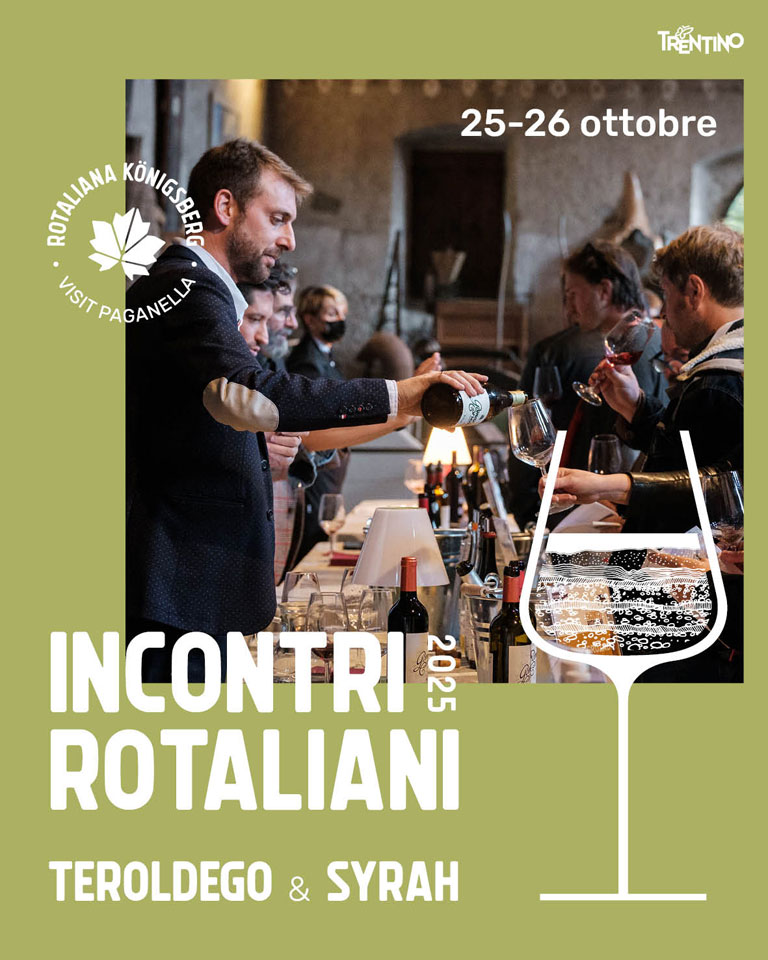Saturday 25th and Sunday 26th October in Piana Rotaliana the fourth edition of the event that promotes the comparison between the great wine territories.
The Piana Rotaliana Königsberg Tourist Consortium presents the new edition of Incontri Rotaliani , the wine and cultural event that promotes dialogue between renowned wine-growing territories through wine talks, tasting tables and tastings. The event, sponsored by the three DOC municipalities, is scheduled for Saturday 25 and Sunday 26 October 2025 in the towns of Mezzolombardo , Mezzocorona and San Michele all’Adige (Trento) and, after Burgundy, Rioja and Etna, this year it is characterized by the comparison between the native Teroldego Rotaliano and the Syrahs of the regions of Cortona (Arezzo) and Côte Rôtie , in the Rhone Valley.
The program will be divided into two days packed with events. The morning of Saturday, October 25th will be dedicated to a wine talk featuring illustrious figures from the world of wine and viticulture. In the afternoon, there will be a walk around tasting with the producers participating in the initiative: an opportunity for the public to meet the winemakers directly and taste their labels. Sunday, October 26th will be dedicated to wine labs : thematic meetings open to all, dedicated not only to wine but also to spirits and food and wine, with in-depth discussions and tastings led by experts and professionals in the sector.
Now in its fourth edition , the event was born from the shared desire of public and private entities to promote the Piana Rotaliana Könisberg as a territory of excellence for wine production and from the desire for comparison and openness with world-famous wine-growing areas. Embraced by mountains and crossed by the Adige and Noce rivers, the Campo Rotaliano has its roots in history as an Austrian fiefdom dedicated to the production of red wine, today known for its interpretations of Teroldego . In this context, the concept of terroir is enriched by a strong human component: the knowledge of the winemakers, the bond with the land, the respect for traditions and the sharing of the community’s identity values.


